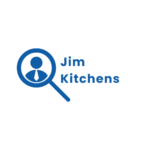Career development and career counseling are essential components of navigating today’s complex job market. Yet, many people still cling to static definitions that limit their understanding of these dynamic processes. By exploring the nuances of career development and the interventions that support it, we can uncover more effective strategies for personal and professional growth.
In this article, I’ll dive into what these static definitions entail and why they often fall short. I’ll also discuss how evolving perspectives on career counseling interventions can empower individuals to take charge of their career paths. Let’s unpack how a fresh approach can lead to more fulfilling careers and better life choices.
Static Definitions of Career Development and Career Counseling Intervention Are
- Dynamic Nature of Career Development: Career development is an ongoing process that requires adaptability to navigate the complexities of modern job markets, rather than a linear progression through fixed stages.
- Significance of Continuous Learning: Lifelong learning is essential for individuals to stay relevant in their fields, enhance their skill sets, and improve job marketability.
- Personalized Career Counseling Interventions: Tailored interventions, such as individual counseling and career assessments, are critical for supporting clients in their unique career journeys.
- Limitations of Static Definitions: Relying on outdated, static definitions can lead to unrealistic expectations, confusion, and dissatisfaction in career trajectories.
- Importance of Goal Setting and Self-Assessment: Engaging in self-assessment and setting clear career goals lays the foundation for effective career planning and proactive career management.
- Networking as a Key Resource: Building professional networks significantly opens doors to job opportunities and enhances access to industry insights, making networking an essential part of career development.
Overview of Career Development
Career development involves ongoing processes that assist individuals in achieving their professional goals. Understanding its significance allows for a more dynamic approach to career counseling and planning.
Importance of Career Development
Career development enhances job satisfaction, productivity, and overall well-being. Engaging in continuous learning and skill enhancement ensures individuals are prepared for evolving job markets. Strategic career progression not only provides opportunities for advancement but also fosters personal growth. Understanding the pathways and resources available contributes to informed decision-making, leading to fulfilling career trajectories.
- Self-Assessment: Individuals evaluate their skills, interests, and values to identify suitable career paths.
- Goal Setting: Setting clear, achievable career goals creates a roadmap for progress and motivation.
- Continuous Learning: Embracing life-long learning helps individuals adapt to changing industry demands and enhances marketability.
- Networking: Building professional relationships provides access to job opportunities and industry insights.
- Career Planning: Developing a structured plan outlines steps to reach career objectives, emphasizing a proactive approach.
Static Definitions of Career Development
Static definitions of career development often limit understanding and applicability in a rapidly changing job market. These definitions can create rigid frameworks that fail to account for individual growth and the dynamic nature of careers.
Definition Analysis
Static definitions typically characterize career development as a linear progression through predetermined stages. For example, definitions may emphasize milestones such as education completion, job entry, advancement, and retirement. This perspective overlooks the nuanced realities of today’s workforce, where career paths often involve lateral moves, role shifts, or even career changes across diverse sectors. Such definitions can misrepresent the ongoing nature of career development, ignoring factors like adaptability and continuous skill enhancement.
Implications of Static Definitions
The implications of relying on static definitions can be significant. Individuals may experience confusion or frustration due to unrealistic expectations about career journeys. Professionals might pursue goals based on outdated benchmarks, leading to dissatisfaction and burnout. Organizations can also suffer; they may misallocate resources or design ineffective training programs, assuming linear career paths. Understanding career development as a fluid, ongoing process leads to a more productive engagement in one’s career journey, enabling better decision-making and fulfillment.
Career Counseling Interventions
Career counseling interventions play a crucial role in guiding individuals toward achieving their professional goals. These interventions adapt to the dynamic nature of the job market, providing essential support for informed career decisions.
Overview of Interventions
Interventions in career counseling incorporate methods and techniques designed to facilitate individuals’ exploration of career options. These interventions address personal strengths, interests, values, and market opportunities. A comprehensive approach enhances self-awareness, promotes active engagement, and fosters realistic goal-setting. Coordinating efforts through various professional resources optimizes the effectiveness of these interventions, ensuring clients receive tailored guidance that aligns with their unique situations.
Types of Career Counseling Interventions
Career counseling encompasses various intervention types, each serving distinct purposes:
- Individual Counseling: Personalized sessions focusing on self-assessment and career exploration. Individuals receive tailored advice based on their specific needs.
- Group Workshops: Collaborative environments where participants engage in activities like resume building, interview preparation, and networking strategies. These settings foster shared learning experiences.
- Career Assessments: Tools that gauge individual skills, interests, and values, guiding clients toward suitable career paths. Results help inform decision-making processes.
- Job Search Assistance: Support in developing job search strategies, including optimizing resumes, preparing for interviews, and utilizing job boards effectively. This intervention enhances employability skills.
- Networking Opportunities: Facilitated connections with industry professionals through events or online platforms. These opportunities can significantly expand professional networks and open doors to potential job leads.
These interventions collectively empower clients to navigate their career paths confidently, ultimately contributing to lifelong career development.
Limitations of Static Definitions
Static definitions of career development fail to capture the complexities of the modern job market. They present a narrow view that structures career pathways as linear and predefined, which limits adaptability and growth.
Challenges in Career Development
Static definitions ignore the challenges individuals face in navigating diverse career trajectories. Rigid frameworks often simplify career development into fixed stages, neglecting factors like skill transferability, shifts in industry demand, and personal circumstances. These challenges create barriers, leading to confusion about career choices. For example, an individual seeking to transition into a new field might struggle with outdated beliefs about requiring specific credentials, despite transferable skills already being in place. Without acknowledging the nuances of individual paths, static definitions can hinder personal progress and fulfillment.
Impact on Counseling Practices
Static definitions heavily influence counseling practices, often resulting in ineffective guidance. When counselors adhere to inflexible models, they may provide limited support and overlook clients’ unique aspirations. Traditional approaches can lead counselors to prescribe one-size-fits-all solutions, which don’t account for individual circumstances and evolving job markets. This rigidity creates a disconnect, reducing clients’ engagement and satisfaction with the counseling process. For instance, a counselor focused on linear progression may fail to suggest alternative routes, such as part-time work in a new industry while pursuing education. Emphasizing dynamic, personalized interventions fosters deeper exploration of options and empowers individuals to create customized career paths.
Complex Job Market
Embracing a dynamic perspective on career development and counseling is essential for navigating today’s complex job market. By moving beyond static definitions, I can better understand the fluid nature of career paths and the importance of personalized interventions. This shift not only enhances my decision-making but also empowers me to pursue fulfilling career trajectories.
As I engage with various counseling interventions, I recognize their potential to guide me through the intricacies of my professional journey. The emphasis on continuous learning and adaptability equips me with the tools needed to thrive in an ever-evolving landscape. Ultimately, redefining career development allows me to create a career path that’s uniquely mine, leading to greater satisfaction and success.

